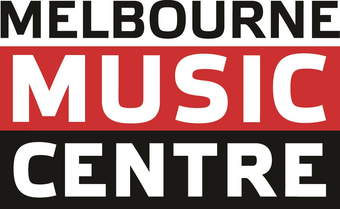Being a guitarist in a band is an exciting and rewarding experience. As a guitarist, you play a vital role in shaping the band's sound and creating memorable music. However, collaborating with other musicians can sometimes be challenging. In this blog post, we'll explore the role of the guitar in a band setting and provide valuable tips to help you enhance your collaboration skills and make the most of your musical journey.
-
Understand Your Musical Role: As a guitarist, it's crucial to understand your musical role within the band. Take the time to listen to other band members and identify how your guitar can complement their instruments and playing styles. Whether it's providing rhythmic support, melodic hooks, or solos, being aware of your role will contribute to a cohesive and balanced band sound.
-
Communication and Active Listening: Effective communication is the key to successful collaboration. Engage in open and honest discussions with your bandmates about your musical ideas, goals, and expectations. Actively listen to their suggestions and feedback, as it fosters mutual respect and helps develop a strong musical connection. Remember, a band is a collective effort, and everyone's input is valuable.
-
Serve the Song: While showcasing your guitar skills is important, always prioritize serving the song. Each song has its own unique vibe and requirements. Pay attention to the overall arrangement and structure, and make musical decisions that enhance the song's dynamics and emotional impact. Sometimes, simplicity can be more powerful than complex guitar solos.
-
Timing and Rhythm: Solid rhythm and timing are essential for a tight and groovy band performance. Develop a strong sense of timing by practicing with a metronome and focusing on your rhythmic accuracy. Work closely with the drummer and bassist to lock in the rhythm section, ensuring a solid foundation for the rest of the band to build upon.
-
Experiment and Collaborate: Don't be afraid to explore new musical ideas and experiment with different guitar tones and effects. Collaborate with your bandmates during rehearsals, jam sessions, and songwriting processes. Encourage creative input from everyone, as it can lead to fresh and innovative musical directions that define your band's unique sound.
-
Stage Presence and Showmanship: In addition to playing great music, stage presence and showmanship are essential for engaging with your audience. Work on your stage presence by practicing your movements, interactions with bandmates, and creating an energetic and visually appealing performance. A captivating live show can leave a lasting impression on both fans and industry professionals.
-
Conflict Resolution: Collaboration may sometimes lead to creative differences or conflicts. It's important to approach these situations with a positive mindset and a willingness to find common ground. Respectfully express your opinions and be open to compromise. Remember, the ultimate goal is to create the best music possible while maintaining a healthy band dynamic.
Conclusion: Being a guitarist in a band requires not only musical proficiency but also strong collaboration skills. By understanding your role, communicating effectively, serving the song, and embracing collaboration, you can elevate your band's musicality and create remarkable music together. Embrace the journey, enjoy the process, and let the magic of collaboration shine through your guitar playing. Rock on!

